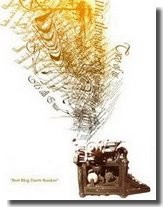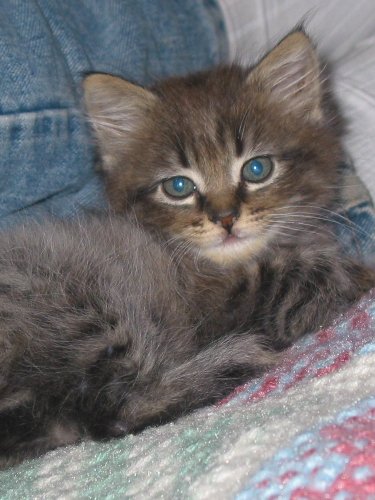March 21, 2009
Eric Mayer at Byzantine Blog has honored me with the Premio Dardos Award. Eric is author, with his wife Mary Reed, of the John the Lord Chamberlain Mystery Series set in the Byzantine Empire of the 6th century.
Now don’t be too impressed with me, because I keep trying to type the award name as “Permio” today. I’m not sure whether I should get to keep an award I can’t spell. I’ll try to be more worthy and at least post a blog entry now and then. In any case I’m grateful to Eric for thinking of me.

Premio Dardos means “prize darts” in Italian and is awarded for recognition of cultural, ethical, literary and personal values in the form of creative and original writing. The rules are:
1. Accept the award by pasting the graphic on your blog along with the name of the person who granted the award and a link to his/her blog.
2. Pass the award to another 15 blogs that are worthy of acknowledgment, remembering to contact each so they know they have been selected.
I’m fudging on the rules a little. I’m paring down my list to award three writers, poets, or artists who blog. All of them are one or the other, and two of them are all three — creative writer, artist, and poet. Don’t ask me why I separate out poet as if it’s not also a kind of creative writer, but poetry is near to my heart. Here’s my list of award recipients:
1. Bev Jackson at Jackson’s Actions
2. Catherine Kerr at Beyond the Fields We know
3. Susan Gibb at Spinning
— Barbara @ 5:57 pm PST, 03/21/09
February 6, 2009
It doesn’t seem possible that we can already be one month and six days into 2009. I’ve been posting so infrequently that the blog barely has a pulse. But it is alive I assure you. It’s just been sleeping, dreaming if you will.
It’s raining and stormy today and I’m grateful for that. I think this is only our fourth big rain of the season so far. My cat Tara had a bath a few days ago on a warm, sunny, dry day that got to 80 degrees and seems to have become typical weather this winter. At least it’s been easy on the heating bill. Not so easy on the water bill or my sinuses.
I’ve been away from blogs except to post my ramblings about Tarot at Spirit Blooms. I’ve worked off-line at my other computer on artwork, read or posted on a couple of favorite Internet forums (more than I should), and searched out alternatives on- and off-line to spending money that I don’t have on books that I dearly want. I started out reading about Carl Gustav Jung; now I’m reading the writings of Jung himself, beginning with his autobiography written late in life, Memories, Dreams, Reflections . Still deep in my J. R. R. Tolkien adventure, I recently finished reading The Annotated Hobbit, and now I’m savoring The Lord of the Rings. I’m a little shocked by how much watching the movies in the interim has botched my memory of the original story. Still they’re excellent movies. One should appreciate each on its own merits, the novel and the movies as separate creative entities. To do the written story complete justice there would’ve had to be nine or more movies instead of three. Not that I would complain, but not everyone is the Tolkien fiend that I am. Up ahead I plan to continue with The Silmarillion
. Still deep in my J. R. R. Tolkien adventure, I recently finished reading The Annotated Hobbit, and now I’m savoring The Lord of the Rings. I’m a little shocked by how much watching the movies in the interim has botched my memory of the original story. Still they’re excellent movies. One should appreciate each on its own merits, the novel and the movies as separate creative entities. To do the written story complete justice there would’ve had to be nine or more movies instead of three. Not that I would complain, but not everyone is the Tolkien fiend that I am. Up ahead I plan to continue with The Silmarillion and The Children of Hurin. Perhaps others, who knows? I’m taking my time, reading mostly late in the evening before sleep, if I’m not too tired by then.
and The Children of Hurin. Perhaps others, who knows? I’m taking my time, reading mostly late in the evening before sleep, if I’m not too tired by then.
Eric Mayer mentioned, in his comment on my earlier post about rereading favorites, that he almost never rereads books. I’ve been the same way most of my adult life. I reread a lot when I was a teen and young adult, but at some point I realized there was plenty in print to read the first time around, and life was short. I felt that I’d miss out on too many other things if I spent my time rereading favorites.
I’ve changed my attitude about that again only recently. This has to do partly with some of the newer fiction that I’ve been dissatisfied with, partly with my budget, and partly with the tiny library here in town where the tastes of the librarians don’t seem to mesh with my own — or I’m just quirky in my reading tastes. I’m sure they have some Tolkien and maybe some Jung, but I’ve come to prefer to take my time and not feel constrained by a return date anyway. I tried writing reviews here for a while, and I found that if the book was a library book I had to return it too quickly, and if I tried to write a review after that, I kept wanting to refer to the book. If I like it, I want it to stay around for a while. I also tried our library’s on-line interconnection with an ebook download system, but that didn’t work for me. Old computer or aging human brain inside user? Either way it didn’t work and I didn’t want to waste time fussing with it. I wanted to read the book. You know, just open a cover and start reading. If something is going to slow me down I want it to be the savor of words.
That brings me to the fourth reason I’ve gotten back into rereading. Mostly it has to do with wanting to read slowly. I’ve given up on reading everything out there. I’ve finally accepted that’s impossible. I’ve decided to hone down my reading list and read what I love — slowly, and as many times as I want.
When I reread an old favorite I don’t have to be in such a hurry to get to the end. I already know how it ends. There is something to the first bloom of a new story, that first time through when it’s a path of discovery, recognition, and suspense. But this time I can pause and enjoy the language along the way, let the suspense build again slowly. My old favorites have language worth pausing for. The more commercial books today tend to be heavy on suspense and bizarre plots and twists, while they seem too often short on the kind of writing I savor. Many feel to me as if they’re written in too much of a hurry, or as if the writer didn’t even like the story he was writing. The secret to great writing, I think, is for the writer to so love the story that he’s reluctant to leave it. Chances are the reader won’t want to leave it either.
But then I’m not a hurrier, never have been. I think it’s too easy to get into an “I’ll miss something if I slow down” mindset in our day and age, though it’s a valid concern to some degree. In the work world, one must hurry enough to show up when needed, and if one slows down one is in danger of not getting important work done, of missing opportunities, or of not being able to do one’s job anymore because one hasn’t kept up with hyperactive technology. There are sometimes valid reasons to hurry. I don’t want the emergency room team to dawdle, or firefighters to take their time arriving at a fire. For readers who want to keep up, there’s such a huge amount being published, in spite of aspiring writers’ concerns that no one is publishing what they write, that it’s easy to think one has no time to reread or to read slowly the first time. There are also such a great number of people who want to be writers that it doesn’t appear we’ll ever have a shortage of reading material, even very good reading material leaving out the bad. It’s a crowded world full of people with something to say, many of them excellent writers.
Still I think we miss out on too much by trying to do or read everything. I’m not well-read, mainly because I’m a slow reader. Maybe that’s why I appreciate books that take a long time to produce. I can sense the love and time that was put into them. I can linger, relish, and wonder why. I can spend a relatively equal time enjoying them, and feel gratitude that the authors took the time to do it right.
Tolkien took something like 13 years to write The Lord of the Rings between 1937 and 1949. He took longer, when one considers all the thought prior to beginning it that he put into creating the world of Middle-Earth, from the time he was a boy, and the time between 1949 and 1954 that he worked with his publisher to get everything just right. That time shows. And it’s not as if by taking that long he missed out on sales, which seem these days so unforgiving of anyone lagging behind. The only time any of his books went out of print was during Word War II and the after-war years, when paper was rationed in England. Oh, and there was the problem of some proofs being destroyed in a bombing or a fire (I don’t remember which) that caused further delay in getting one edition of The Hobbit back into print. Of course one important factor in his print longevity was in being Tolkien. There have been many imitators and, as Eric seemed to hint in his comment, most imitations have not held up very well. Time is, I think, one reason.
I’m certain that the biggest problems with many books is that they’re devised and written in too much of a hurry, and because they aren’t true to the writer’s own creative promptings. I can see some publisher urging a writer to create something like Tolkien wrote, but to do it right now. Imitation done in a hurry can rarely hold up to the proper process of creation. Sometimes, but not usually. Imitation as a whole is an iffy and questionable practice. Readers may say they want another story like The Lord of the Rings, but they’re not saying they want an imitation. They want more Tolkien, and that’s simply the best possible compliment to the original creator, not to any would-be imitator. Perhaps we sometimes, as readers, make the mistake of confusing the two ideas ourselves and go looking for another Tolkien when we should be looking for something else that’s new and fresh, and over which someone labored long and lovingly.
It’s been said that most of a writer’s work doesn’t take place at the typewriter or keyboard, or even necessarily with paper in hand. It happens inside the mind of the writer. I personally think every writer’s workspace needs a comfy couch, or a bed, and a window with a view of a natural setting or garden, as well as an immense library. I also think it’s safe to say that most great fiction writers have lived what they write. By that I don’t mean they’ve experienced it in physical reality. I mean they have a fertile and active imagination, an ability to visualize the experiences they haven’t actually lived. A relentless imagination at that. We use our imaginations to read, but the writer uses his imagination far more, over and over again, actively reliving the scenes he writes in his mind, working them out until they feel right, until he’s ready to translate them into written language. They get to know their own unconscious realms and facets of their own characters, as well as the archetypes of the collective unconscious, even more than we do ordinarily when we dream at night.
Now I know that some writers create at the keyboard on the fly. I’ve done that too. But the stories I’ve written that I felt best about were usually those that I had in mind for a long time before I dared to put any words down. They were an integrated collection of many things that occurred to me, including some fantasies, day dreams, things I wondered about, and even whole scenes, characters, or settings that occupied my mind well before I realized they’d formed anything close to a story worth sharing or writing down. Some were ideas I couldn’t put away because they begged to be told.
Fast writing may be part of the problem. I once rewrote a novel (Snow Angels) in the course of a few weeks, retyped the whole thing from scratch, from my head. But that story had been in my mind for a long time, in various forms, and even on paper in a few forms, before I did that. I’ve never taken part in NaNoWriMo, but I think it is possible for it to produce something of value, provided there’s something already percolating in the writer’s mind before they begin, perhaps for years before they begin typing it out. I’ve done fast writing exercises, and I know they have their value. But I wonder if the trend in fast writing is the reason so many new books I read leave me flat these days.
There is fast writing that’s great, and there have been many great prolific writers. But if we make the mistake of thinking their greatness lay in their proliferation, we do them a disservice. The secret to great writing also doesn’t lie in taking forever to produce something. I’m sure there are plenty of slowly written pieces of rubbish passing for fiction. But prolific writers are the exceptions to the slow writing rule, I think, and like Mozart’s music, great fast writing is great for other reasons than its speed of production or lack of revision. Of course everyone should write at their own speed, but fast writing of a single draft usually requires slow thinking up front, and long, slow revisions afterward. If one doesn’t take the time to do it right, to follow through, to consider it worth some effort, then even that smaller portion of fast writing time is wasted, not to mention the time anyone else takes to read the result. If it’s not worth spending lots of time writing, then maybe it’s not worth reading either.
In spite of how long Tolkien’s work has remained in print, it’s still possible that work of this kind is best done for oneself, with any idea or intent of publishing as a mere afterthought. One should, after all, consider oneself worth writing well and respectfully for. From what I understand of Tolkien, he only shared what he created with a few colleagues, friends, and his children, until the friend of a friend mentioned the possibility of publishing The Hobbit. Maybe that’s why it’s so good. He took time to shape and polish it to be what he wanted for himself and those he loved. Only after that did he shape and polish it for publication. Surely that provided him a great deal of satisfaction in what he wrote, regardless of whether strangers in his own land or across the pond liked it later on. He was also a real-life expert regarding myths of a world similar to the one he created and regarding the language he used to create it. But was he an expert who happened to come up with a story he was best suited to write, or was he a writer in the making, even as a child, who lived in his head creating a world first and who worked all his life to become expert at just what he needed to recreate that world on paper? Either way, he took his loving time about it, and that’s a good thing for all of us. After all, what’s the rush?
— Barbara @ 1:55 pm PST, 02/06/09
December 11, 2008
As I get further into middle-age, I’m sure I’m not the only one who questions now and then how good my memory still is. At one point today, while doing laundry, it occurred to me how many details we remember about something as simple as laundry, with all the clothing items we own and the differences in how best to wash them.
There’s a lot to remember while doing laundry. Each item seems to have its unique quirks, and I remember them all, once I’ve washed the items once or twice. I always dread washing a new item the first time. Washing instruction tags are sometimes dead wrong. You never know what will happen. When washing something new, all standard sorting rules apply, and then some. Once I get to know an item I can relax certain rules.
I remember it all, from washing day to washing day. Which items can be washed together? Which need to drip dry? Which are safe to bleach, and with chlorine or the other kind? And so forth. I remember long past laundry errors, such as washing a bright red shirt years ago with some whites and winding up with lots of pink. I remember exactly which red cotton shirt did that, because I loved it and refused to get rid of it even after it ruined other things. (I only washed it with black clothing from then on.) I wore it until I wore it out.
I remember that this red t-shirt I own now can be washed safely with almost anything and at almost any temperature, and I shudder to think what chemicals or polluting processes were used to get it so colorfast. I also sometimes worry that I’ll grow so complacent about that shirt’s colorfastness that I’ll make the red shirt error in the future with another red shirt. I remember where I bought certain clothing items, how long I’ve had them, and in some cases who gave them to me. I have some pretty old clothes, so that’s some fairly long term memories. I remember to turn one particular shirt that I hardly ever wear inside out to dry it, because otherwise the metal buttons will make so much noise in the dryer that they drive me to distraction. I remember which item is made of so clingy a fabric that it has to drip dry, or it will pick up every speck of lint in the load, even with an anti-static dryer sheet — even if I don’t cut the dryer sheet in half to save money. I remember which wool socks are the type of wool that won’t felt, and I happily toss them in with everything else.
As I finished loading the dryer for the last time today, I thought doing laundry provided a decent test of my memory, and I felt great about the state of my memory. I felt great, that is, until I paused before closing the dryer door, and couldn’t for the life of me recall whether I’d tossed in a dryer sheet.
— Barbara @ 3:59 pm PST, 12/11/08
July 8, 2008
Our summer weather has set in, likely until mid to late October, so I have to wake up early to get all my outdoor work done. I’m amazed how fast things can grow in the warm weather and get away from me — mostly things I don’t want to grow, like weeds.
My usual care to wear gloves when working in the yard had lapsed recently, but working outside earlier than usual this morning meant that I happened across two black widow spiders. One, on the lower rock wall, was attempting to kill a big iridescent green June Beetle, or what we call a June Beetle here, aka Fig Eater Beetle. The beetle was 10 to 15 times the spider’s size. Their struggle mesmerized me for a moment as I wondered who would win, the beetle snapping spider silk as quickly as it wrapped around it. It was the noise he made that drew my attention in the first place. I would’ve intervened, if I’d had something handy to kill the spider with, but the next time I walked past, the spider — hiding from me, no doubt — was nowhere to be seen and the beetle was bumbling away. I’ll be more careful to wear gloves and not work in flip-flops anymore, unless I’m only watering. Black widows usually hide from people, but I don’t want to surprise one.
My little friend Tara is growing fast. A kitten in the house means lots of interruptions to play, or to stop misbehavior in its tracks, or just to cuddle. I’ll try to post an updated photo later, but it might be a blur unless I catch her when she slows down to nap, bask in a sunny window, or watch TV. She’s now more than three times the size she was when I took these pictures, and darker since her kitten fluff has been replaced by a true dark tabby coat. She’s a Siamese mix, but you wouldn’t know that to look at her.
Tara watched Mikhail Baryshnikov dance, in an older video on the arts channel last night, and I think she decided he’s the most cat-like human she’s seen. I hope she doesn’t expect us to move like that! But maybe it’s good that she knows some humans are capable of it, just to help us keep the upper hand. Sometimes we call her Rocket Cat, and one day recently, as the dog and I watched in glazed over amazement while she raced around and up and down a room, I commented to him, “You know, cats can almost fly.” Indi seemed to agree.
I’m not really sure what all else keeps me busy, but there’s a lot of it, whatever it is. I don’t work in the garden enough to excuse not blogging, but I do spend some time finding things to do with the excess produce.
We’ve had loads of squash from just four plants, so far, some of it now in the freezer and some given away. We may need a bigger freezer if I keep gardening. One way that we like zucchini is simply sautéed in a little olive oil with basil, oregano, salt, and pepper. We’ve had some cucumbers, which I personally think would make a good breakfast food, because just one bite seems to wake me up with its fresh, clean crispness. The tomatoes got a late start (from seed), so we haven’t had any to eat yet, but they’re blooming and setting fruit, growing like mad in the heat. There’s a San Marzano Roma about the size of the end of my thumb that I predict will be the first to the table, unless that little cluster of marble sized cherry tomatoes beats it to perfect redness. With the salmonella scare still pretty much a mystery I’m looking forward, even more than I expected when I planted them, to fresh homegrown tomatoes.
Yesterday we discovered how well extra garden produce can pay off, when we gave a large zucchini to a neighbor boy to take home, and later his mom sent over four of the most perfect little quesadillas I’ve ever tasted. Oh. My. God. These were not the quesadillas you find in Mexican restaurants, or the floppy things we usually concoct with flour tortillas and cheddar cheese, in a skillet. Every part of hers was homemade, including flaky six-inch corn flour shells folded in half and crisped. They were filled with chicken, some kind of white cheese, possibly one of the Mexican cheeses described here, and fresh cabbage, and they came with a magical homemade chili sauce to pour over them. I am positive we got the better end of that exchange. You can’t get food like that in any restaurant, and I’m in heaven just remembering them. It’s odd how a really good hot sauce can actually cool you. As my mouth heated up, my body seemed to cool right off. Must’ve been all my pores and sinuses opening. It was positively delicious. Mmmmh!
— Barbara @ 12:49 pm PST, 07/08/08
May 30, 2008
Mystery author Eric Mayer* mentioned in a recent blog post that his blog journaling hasn’t been very habitual of late. He went on to write about habits, and that got me to thinking about my habits, and how they’ve changed in the past year or so. Obviously, for me, blogging has taken a back seat to other things. So has my fiction writing, other than attempting to sell my latest finished manuscript, a mystery about a tarot reader whose awakening ability as a medium gets her involved in a murder investigation. (Interested agents or publishers are welcome to inquire here.)
Habits can be good or bad, and I’m sure everyone has some bad ones they’d like to unload. But one new habit I’m happy to have taken on this year is gardening.

Gardening is indeed a habit, one that gets into your blood in a way I didn’t anticipate when I started out this year. I’d done a tiny bit of gardening as a kid, when I remember planting one rose bush of my own but mostly helping my grandmother with her strawberries and vegetables on the embankment behind my parents’ house. Later, in my first apartment, I nurtured a few houseplants, and throughout my work life I’ve usually kept a potted plant on my desk. I kept African Violets in a north facing window in the last house we rented, until a cat took over that window sill. Still, my husband did most of the outdoor gardening, with a little weeding here and there on my part, until March of this year.
It started this spring with tending a few vegetable and flower seeds until they sprouted, and then the seedlings until they went into the ground. From there I progressed to caring for plants in the ground and preparing the soil for more of them. It’s rapidly expanding to a succession of all of these things, in the hopes of keeping some fresh produce in our salad and veggie bowls through this summer, as well as brightening a corner of the front yard, where my ultimate goal is to keep flowers blooming in a little cottage style bed year round. I’m a ways from that goal yet.
I’m still new at this, and I got a late start this year, but I get help and advice from various sources, and gardening is now a firm habit that I won’t easily give up. It’s one of the first things I think about in the morning and one of the last I think about before the sun goes down.
The plants seem happy about my gardening habit, when they can figure out what season it is. Our weather this spring switched back and forth for a couple of months from one extreme to the other, first dry Santa Anas with temperatures in the 90s, and then thick cloud cover and a shifting Jet Stream chilled the air to the 50s. This went back and forth for weeks, with little pleasant weather in between, and it kept our plants confused. In the past two weeks the weather has leveled off, and the plants are loving it.
They say beauty is in the eyes of the beholder, and I’ve recently realized there’s little more beautiful to me than a tiny plant bursting out of its seed container. Call me crazy, but I think baby plants can be almost as cute as a kitten, and they, like the kitten, draw out my mothering tendencies.

(I’ll bet you expected a photo of a seedling, but I couldn’t help the obligatory kitten shot.)
To some this pleasure might seem like taking joy in watching paint dry, but to me it’s more like watching a sunset at the end of a heat wave.

We celebrated our first avocado blooms a few months ago.

Now some fruit has set, which we hope will grow to maturity.

Avocados, according to my resident expert Ken who’s read something like 200 online agricultural reports about them, tend to drop a good portion of their fruit early, which can be disappointing to home gardeners. It will be disappointing to me, if it happens, because Reeds are my absolute favorite avocado variety.
Two days ago I celebrated my first squash blossom.

Zucchini may seem an ordinary thing to seasoned gardeners. It’s one of the easiest things to grow and the butt of gardening jokes, usually in reference to an overabundance of it. But I like zucchini, I love my resplendent squash plants with their huge green leaves, and those yellow-orange blossoms are gold to me.

I’m learning more about the various weeds that grow in the garden, some of which are edible. For instance, purslane and dandelion make delicious salad greens. Note, if you decide to try eating weeds from your garden, be careful that you know what you’re eating. Ensure that the plants haven’t been subjected to herbicides or pesticides and that they aren’t in fact toxic weeds.

Even some semi-edible weeds, like the sour grass we all discovered as kids, can be a problem if eaten in quantity, I’m told, and purslane looks very similar to a toxic type of spurge that often grows right alongside it. Have an expert show you how to identify edible weeds, and examine carefully whatever you pick to eat. This point was driven home to me when I found spurge, with its milky sap, growing in my own little purslane patch.
Yesterday Ken pointed me to a Los Angeles Times article about Guerrilla Gardeners, which linked to a slide show on how to make “seed bombs” as well as two blogs, here and here, about guerrilla gardening.
Gardening has not only revolutionized my daily routine. It’s apparently a revolution that’s spreading once again, as Victory Gardens did in the last century, with people today gardening to save money on local food and working on a clandestine volunteer basis to re-green the land.
_ _ _
* In case you aren’t aware, Eric Mayer and Mary Reed’s latest John the Eunuch Byzantine mystery, Seven For A Secret, was released in April by Poisoned Pen Press. If you haven’t kept up with their historical mystery series, it’s not too late to start. The earlier books in the series are still in print, and some are now available as Kindle editions.
— Barbara @ 3:27 pm PST, 05/30/08
March 9, 2008
A few days ago the New York Times ran a story headlined Gang Memoir, Turning Page, Is Pure Fiction, about Margaret Seltzer, alias Margaret B. Jones, and her memoir that wasn’t a memoir at all. She has admitted it was fiction. Today Alternet reports on yet another memoir writer who lied, in Literary Frauds Strike Again … and Again.
So, let’s see if I understand this. We’re supposed to sell our fiction as memoir now? Is that what I’ve been doing wrong? Is this what they mean by creative nonfiction? I’m confused.
I guess the little hand slap mainstream media gave James Frey, not to mention his second book contract, weren’t very good deterrents to the hot new trend in books — memoir fraud.
Readers expect a memoir to be true, if from a limited perspective of the writer’s personal experience and memory of events, which can of course be slightly skewed. We don’t all remember events that happened when we were growing up the same way our siblings or parents remember them. Obviously a lot of other nonfiction is opinion, or facts mingled with theories, presented from a single biased viewpoint. But a memoir isn’t supposed to be deliberately made up and then presented as the author’s own story. That’s called fiction.
These so-called memoir authors sold what they wrote as their own life stories, when they knew the stories either weren’t true or weren’t their experiences. They could’ve called their stories novels, or fictionalized accounts, but they didn’t. They called them memoirs. Some of them (Frey, at least) made a lot of money.
I don’t know about you, but when I spend hard-earned money on a book, my expectations are still pretty high. Those expectations are being fulfilled by books less and less often these days. I’m starting to think it’s no wonder people are reading fewer books, and I think the problem boils down to simple greed.
We all need to make a living. But most of us try to work hard and put in an honest effort at something for our living. We don’t resort to cheating, theft, fraud, and sloppy ethics. So who’s to blame here? Are these people just laughing at all us dummies who bother to actually be honest about our work? Laughing all the way to the bank?
The LA Times has published another opinion on why this type of thing happens in Why we fall for the fakes, an editorial that blames not just the writers, but the publishers, and finally the readers who keep purchasing these books.
What do readers think about this? If you pick up a memoir to read, do you want to know the person is at least attempting to be honest and accurate? Do you want to believe the publisher did their part in making sure they weren’t helping to perpetrate a fraud, or even instigating it? Do you think the writer is making a promise he or she is responsible to keep? Or when you pick up a memoir do you expect a certain amount of fiction?
What do you consider getting your money’s worth from a book? What are your expectations of authors and publishers as far as honesty? Are consumers partly to blame when we keep buying and don’t demand quality and integrity from the companies selling us products? Are we the readers to blame for books that fall below standards in either quality or integrity? Are we voting with our dollar for dishonesty? Or is that just an easy excuse for those who knowingly sell us shoddy or misrepresented products? Isn’t that blaming the victims, something like the purse snatcher saying, “Well she was just walking along the sidewalk. What was she doing there if she didn’t want it stolen?”
Perhaps most important of all, how does this make you feel about telling young people they should read more books?
— Barbara @ 11:40 am PST, 03/09/08
November 22, 2007
We have holidays for a reason, and every culture in the world has had them. But sometimes we need to take a look at our reasons for celebrating, and exactly what it is that matters. We need a way to mark the passage of the seasons, to remind ourselves with lessons from the past why we have reason to celebrate, to review our mistakes as well as our blessings.
When I woke up this morning, I couldn’t stop thinking about this song that I learned as a kid for Thanksgiving: (more…)
— Barbara @ 2:22 pm PST, 11/22/07
August 31, 2007
We had to say goodbye to our little gray cat Emily today. We think she was about 20 years old, but we’re not sure, because she adopted us just over nine years ago, appearing in our back yard to steal our puppy’s food. She had a lot of problems, resulting from having nearly starved on her own without front claws, and having possibly been abused. She was missing half her teeth when she found us, and we think she suffered the cat version of PTSD. But over time she warmed up to all of us and became an integral part of our family. We like to think we were able to give her a nice retirement here, after all her troubles. She helped us say goodbye to another dear cat friend, Merlin, in 2000, and today we said goodbye to her.
I’ll miss her purrs, her silky, silver-gray fur, and the gentle tap of her paw when she wakened me in the mornings.
Just a few nights ago, The Lord of the Rings trilogy played on television again. We didn’t watch, because I intended to watch our DVDs again soon, but we caught the tail end of Return of the King, and the final song.
For days that song has stayed in my mind, popping into consciousness at odd moments. Today it did again, and I wondered about it, because I couldn’t recall the singer’s name, the name of the song, or the lyrics. The music just kept haunting me. So I looked it up, and remembered as soon as I sat down to do a search that it was Into the West. Annie Lennox sang it for the film. I love this song. Right now it’s helping me say goodbye to Emily. I learned that it was partially inspired by the death of young New Zealand filmmaker, Cameron Duncan, and first performed in public at his funeral. That makes it seem even more appropriate as Emily’s song of passage.
Safe journey, little friend.
The song is available as part of the soundtrack from the film: The Lord of the Rings: The Return of the King [SOUNDTRACK]

— Barbara @ 2:34 pm PST, 08/31/07
July 4, 2007
Reenie got me thinking about critiques today, specifically peer critiques of fiction.
As a technical writer and editor, I used to give and take strong, pointed, and mind-numbingly detailed critiques. That made sense, because what my coworkers and I wrote sometimes involved life or death safety procedures, or processes in which expensive equipment could be damaged if something wasn’t done right. We had to be precise, and could not leave room for interpretation or confuse anyone. There was no gray area. So I steeled myself and went through the review process. I found I could keep my emotions completely out of it, because I knew what was at stake, and it wasn’t about me. I always learned something.
Fiction is different — except that part about always learning something. (more…)
— Barbara @ 4:17 pm PST, 07/04/07
March 14, 2007
I’ve been struggling for topics to blog about, but surely there can be no more chilling thought for a writer than people not wanting books even when they’re free. Someone posted, on a mystery mailing list I belong to, that she boxed up what I’ll presume were mystery novels, and placed them out in front of her home, labeled as free . . . and had no takers. This was in a small university town.
The story surprises me, because in our former neighborhood, where our back yard faced a community college parking lot, we had excellent luck putting things out in the driveway for free, including boxes of used books. Sometimes people took entire boxes rather than a book or two. Nearly everything we put out found a home, including an old sofa we’d acquired already well-used, which I was certain we’d wind up hauling to the dump. Ours wasn’t a busy street except during classes, when students parked there, so I have to assume it was sometimes students who took those items. Then again, my experience with that was ten years ago. Now everyone I see walking around has a cell phone stuck to one ear, and I’m lucky if they avoid colliding with me. Maybe they wouldn’t SEE the books, even with a big sign.
When I was a student, I would’ve browsed through any box of free books on offer, even though I had plenty of other reading that I should be doing instead, for school. My grandmother used to say that no one in our family could clean an attic, because we’d stop to read everything. (That was before bubble wrap, when we used newspaper to wrap fragile items.)
Which reminds me, I dreamed just last night about the car I drove as a student. I hadn’t thought about that car in years. It was a white 1964 Mercury Comet that had a lot of miles on it before I got it. The dream was a mini-nightmare, not because I found myself in that car, but because this creepy guy who’d just followed me out of a bank removed what I thought was a disguise — a wig, under which he had a shaved head — then tried to get me to give him a ride. I was suspicious of him, so first I told him that if I did that my dad would kill me. (I must’ve been a teenager in the dream, which explains the car.) He argued with me, but I got into my car and locked the doors. It isn’t the sort of dream that usually qualifies as a nightmare for me, but it woke me up, heart racing.
That first car had some real-life nightmarish qualities. One was its tendency to overheat if I drove it to a higher altitude. I love the mountains, so not being able to drive my first car to the mountains without it overheating frustrated me no end. As the car aged, it developed other idiosyncrasies. I think my dad and I were at one point the only two people on earth who knew how to start it, which involved pumping the gas pedal just the right number of times, then holding it down . . . oh well, I don’t remember the sequence now. It had other problems too, and I have to wonder now at my desire to drive the thing, but when you’re young I guess you just want to go. You don’t care what you put up with to do it.
That car’s most nightmarish problem was the front passenger door’s sticky latch. My parents paid for my gasoline on the condition that I drive my grandmother anywhere she wanted to go. One day the door didn’t catch, and it flew open when I made a turn. Grandma didn’t fall out, but that incident qualifies as more nightmarish than the dream that ratcheted up my heart rate last night.
What about you?
Do you rummage through boxes of free books whenever you see them?
What was your first car like?
Do different things scare you in dreams than in real life?
— Barbara @ 10:38 pm PST, 03/14/07














